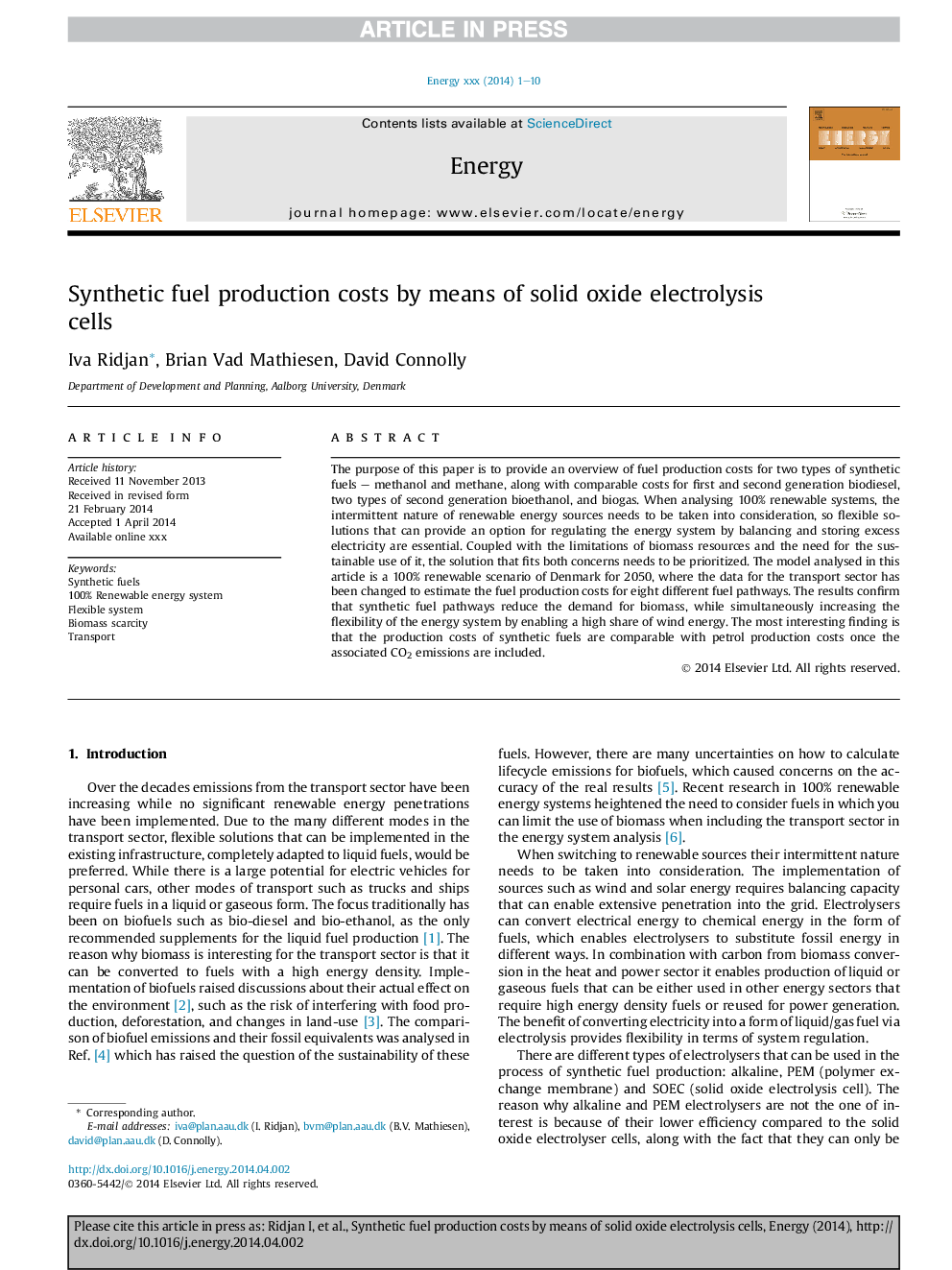| Article ID | Journal | Published Year | Pages | File Type |
|---|---|---|---|---|
| 8076519 | Energy | 2014 | 10 Pages |
Abstract
The purpose of this paper is to provide an overview of fuel production costs for two types of synthetic fuels - methanol and methane, along with comparable costs for first and second generation biodiesel, two types of second generation bioethanol, and biogas. When analysing 100% renewable systems, the intermittent nature of renewable energy sources needs to be taken into consideration, so flexible solutions that can provide an option for regulating the energy system by balancing and storing excess electricity are essential. Coupled with the limitations of biomass resources and the need for the sustainable use of it, the solution that fits both concerns needs to be prioritized. The model analysed in this article is a 100% renewable scenario of Denmark for 2050, where the data for the transport sector has been changed to estimate the fuel production costs for eight different fuel pathways. The results confirm that synthetic fuel pathways reduce the demand for biomass, while simultaneously increasing the flexibility of the energy system by enabling a high share of wind energy. The most interesting finding is that the production costs of synthetic fuels are comparable with petrol production costs once the associated CO2 emissions are included.
Related Topics
Physical Sciences and Engineering
Energy
Energy (General)
Authors
Iva Ridjan, Brian Vad Mathiesen, David Connolly,
